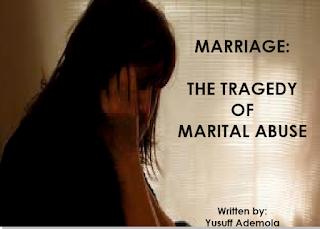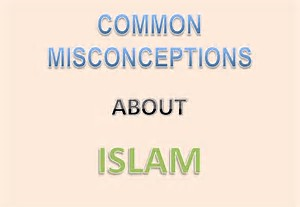WHAT YOU SHOULD KNOW ABOUT RAMADAN (EPISODE 11)
By Yusuff
Ademola Adesina
Episode 11: The Etiquette
of Eid-el-Fitr
Indeed, all praise and adoration is to Allah. May the peace
and blessing of Allah be upon the last messenger, Prophet Muhammad, his
households, his companions, and those on the path of righteousness until the
Day of Judgment.
The life of this world is finite, and our time in the earth
is predetermined and limited. It wasn’t long ago that everyone was excited
about the commencement of Ramadan, but now, Ramadan has come and ready to leave. Everyone is now waiting in anticipation to celebrate the
joyful Day of Eid.
Eid-el-fitr day is the first of day of the month of Shawwal.
It marks the end of Ramadan, which is a month of fasting. Muslims are required
to attend communal prayer, listen to the Khutubah (Sermon) and give
zakatul-fitr. It is a day of worship, a day of peace and thanksgiving, and a
day of festive. Muslims are thus permitted to spend money on foods, drinks,
clothes and other permissible action. The following is the list of etiquette to
follow on day of Eid-el-Fitr:
1. Doing Ghusl before going out for
prayer.
It was narrated that
Abdullah Ibn Umar used to do ghusl on the day of Fitr before going out
to the prayer-place in the morning. (al-Muawatta, 428)
2. Eating before going out for Eid-el-Fitr
prayer
Anas bin Malik narrated:
Allah’s Messenger (PBUH) never proceeded (for the prayer) on the Day of
Eid-el-Fitr unless he had eaten some dates.” (Sahih Bukhari, Book of the two
festivals, no. 5)
However, whoever does not
have dates should eat anything that is permissible. This is to ward off the
possibility of adding to the fast, and to hasten to the command of Allah.
3. Saying Takbeer on the day of Eid
This is one of the
greatest sunnah of Eid. It was narrated that al-Waleed ibn Muslim said: I asked
al-Awzaa’i and Maalik ibn Anas about saying Takbeer out loud on the two Eids.
They said, ‘Yes’, ‘Abd-Allaah ibn ‘Umar used to say it out loud on the day of
al-Fitr until the imam came out (to lead the prayers).
It was narrated in a
saheeh report that ‘Abd al-Rahmaan al-Sulami said, “They emphasized it more on
the day of al-Fitr than the day of al-Adha.”. Wakee’ said, this refers to the
takbeer. (See Irwa’ al-Ghaleel, 3/122/)
The time for Takbeer on
Eid-el-Fitr starts from the night before Eid until the Imam enters to lead the
Eid prayer.
Description of Takbeer
It was narrated in the
Musannaf of Ibn Abi Shaybah with a saheeh isnaad from Ibn Mas’ood (may Allaah
be pleased with him) that he used to recite takbeer during the days of
tashreeq:
Allaahu akbar, Allaahu
akbar, laa ilaaha ill-Allaah, wa Allaahu akbar, Allaah akbar, wa Lillaah
il-hamd (Allaah is Most Great, Allaah is most Great, there is no god but
Allaah, Allaah is Most great, Allaah is most great, and to Allaah be praise).
(Reference: https://islamqa.info/en/36442)
4. No Nafil (voluntary prayer) before or
after the Eid prayer
Ibn Abbas narrated: The
Prophet (PBUH) offered a two rak’at prayer on the Day of Eid-el-Fitr and he did
not pray before or after it…” (Sahih Bukhari, Book of the two festivals, no.
13)
5. Sadaqah: give alms
Ibn Abbas narrated: The
Prophet (PBUH) offered a two rak’at prayer on the Day of Eid-el-Fitr and he did
not pray before or after it. Then he went towards women along with Bilal and
ordered them to pay alms and so they started giving their earnings and
necklaces (in charity)” (Sahih Bukhari, Book of the two festivals, no. 13)
6. Everyone should go out for the Eid
prayer
Um Atiya narrated: “We
used to be ordered to come out on the Day of Eid and even bring out the virgin
girls from their houses and menstruating women so that they might stand behind
the men and say Takbir along with them and invoke Allah along with them and
hope for the blessings of that day and for purification from sins.” (Sahih
Bukhari, Book of the two festivals, no. 20)
Hafsa narrated the above
mentioned Hadith and added: “The mature girls or virgins staying in seclusion
but the menstruating women had to keep away from the Musalla (prayer-pace)”
(Sahih Bukhari, Book of the two festivals, no. 23)
7. Offering congratulations
The etiquette of Eid also
includes the congratulations and good wishes exchanged by people, no matter
what the wording, such as saying to one another Taqabbala Allaah minna wa
minkum (May Allaah accept (good deeds) from us and from you” or “Eid mubaarak”
and other permissible expressions of congratulations. (Reference: https://islamqa.info/en/36442)
8. Adorning oneself
It was narrated that
Abdullah ibn ‘Umar (may Allaah be pleased with him) said that ‘Umar took a
brocade cloak that was for sale in the market and brought it to the Messenger
of Allaah (peace and blessings of Allaah be upon him), and said, “O Messenger
of Allaah, buy this and adorn yourself with it for Eid and for receiving the
delegations.” The Messenger of Allaah (peace and blessings of Allaah be upon
him) said to him, “Rather this is the dress of one who has no share (of piety
or of reward in the Hereafter)…” Narrated by al-Bukhaari, 948.
The Prophet (peace and
blessings of Allaah be upon him) agreed with ‘Umar on the idea of adorning
oneself for Eid, but he denounced him for choosing this cloak because it was
made of silk. So a man should wear the best clothes that he has when going out
for Eid.
With regard to women, they
should avoid adorning themselves when they go out for Eid, because they are
forbidden to show off their adornments to non-mahram men. It is also haraam for
a woman who wants to go out to put on perfume or to expose men to temptation,
because they are only going out for the purpose of worship. (Reference: https://islamqa.info/en/36442)
9. Going to the prayer-place by one route and
returning by another
Jabir bin Abdullah narrated:
“On the Day of Eid the Prophet (PBUH) used to return (after offering the Eid
prayer) through a way different from that by which he went.” (Sahih Bukhari,
Book of the two festivals, no. 23)
Jazakumul-Laahu Khayran.
Taqabal-Laahu minaa waminkum.
Eid Mubarak to you all.
May Allaah reward for following this series, check out for the last episode of this series discussing the question; What next after Ramadan?
Jazakumul-Laahu Khayran.
Taqabal-Laahu minaa waminkum.
Eid Mubarak to you all.
May Allaah reward for following this series, check out for the last episode of this series discussing the question; What next after Ramadan?










Comments
Post a Comment